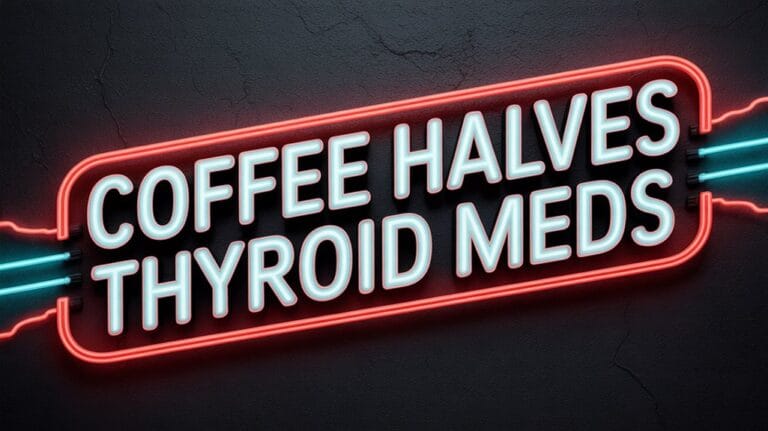Many people take medicine every morning with their coffee, yet this common habit can change how drugs work. Coffee interacts with many tablets, altering stomach acid and speeding gut movement. Because of these coffee interactions, medication absorption can rise or drop sharply.
Scientists note coffee lowers the stomach’s pH. This lets some pills dissolve faster, while others bind to food and sink unseen. Thyroid tablets like levothyroxine drop in uptake by as much as half if coffee arrives too soon.
Neuroleptic drugs, such as certain antipsychotics, form clumps with coffee compounds. Up to 80 percent of the active bits can then sink out of solution, leaving little to enter the bloodstream. Studies using low doses show this risk clearly.
Caffeine also enhances gastric acid, pushing aspirin peak levels higher. Pain relievers like ibuprofen and acetaminophen reach the blood faster and can peak sooner. The faster rise can intensify relief but may also increase side effects.
Asthma drugs carry warning letters when linked with extra caffeine. Headaches, jitteriness, and a racing pulse often appear because both stimulants act on the same nerves. Cold tablets with pseudoephedrine join the list of compounds that act louder after a cup.
The liver enzyme CYP1A2, tasked with breaking down caffeine, slows when drugs such as terbinafine or metronidazole join the mix. Slower clearance means the stimulant lingers, tripling the odds of jitters or a pounding heart.
Doctors report that blood pressure medicine absorption also dips sharply if coffee is swallowed within minutes of the tablet, forcing some patients toward timing their first cup carefully. Decaf still weakens levothyroxine if taken too close together; a gap of at least 30 to 60 minutes is often written on the label. For patients on levodopa, absorption swings widely when coffee joins the scene, so doses must be watched. Chronic users of prescription drugs should check caffeine intake because it can complicate drug processing and excretion.
Investigators also note that tannins in coffee bind iron and some vitamins. This binding blocks minerals from crossing the gut wall, leaving a possible shortfall when coffee sits beside a multivitamin.


